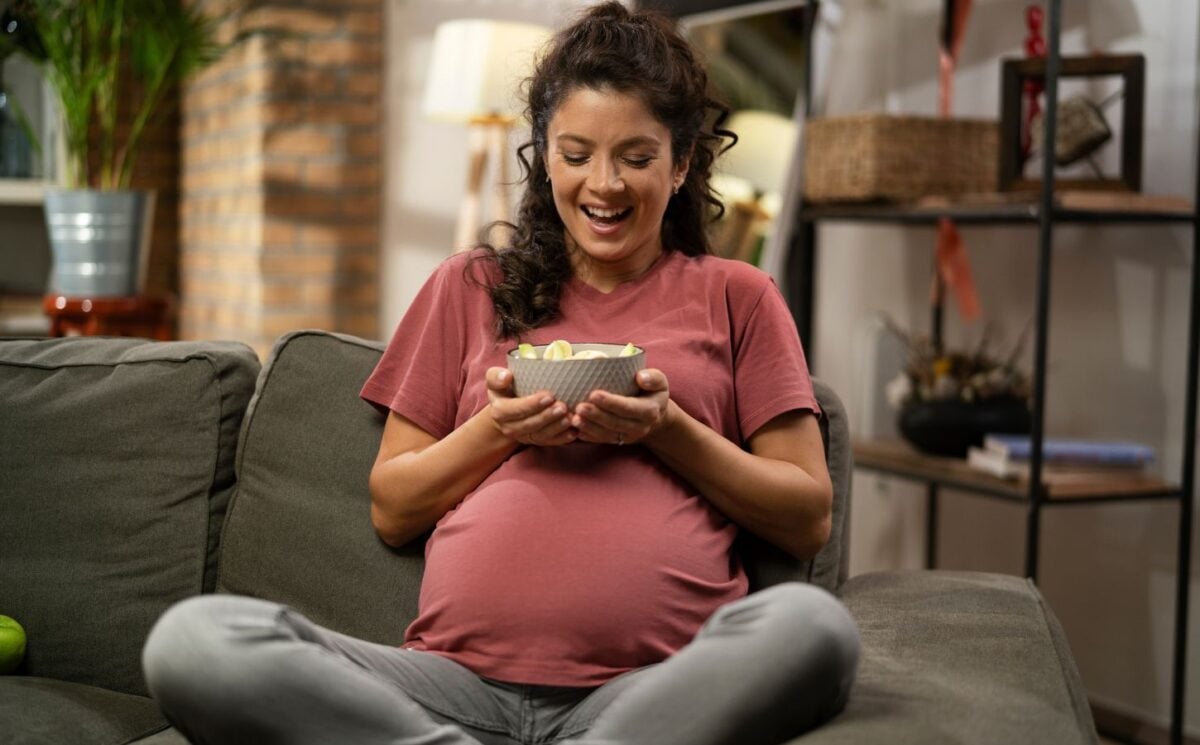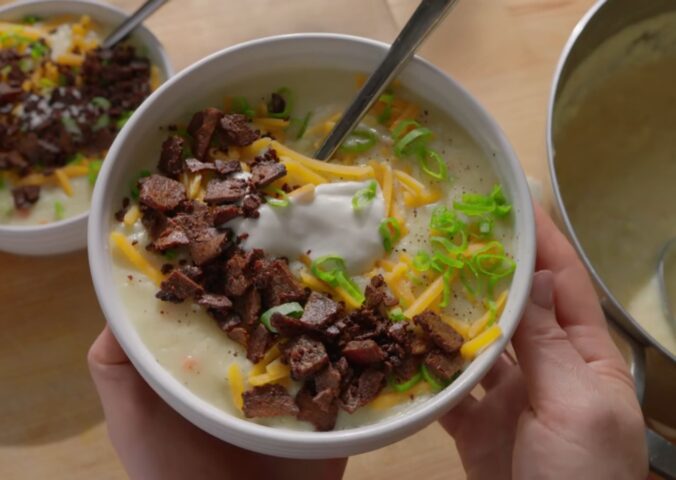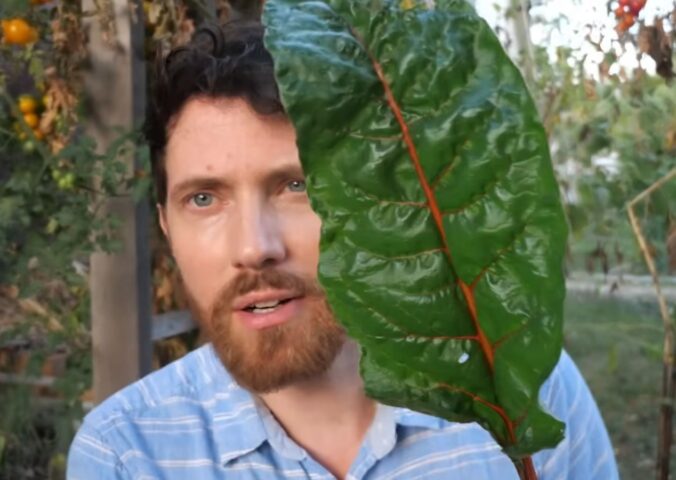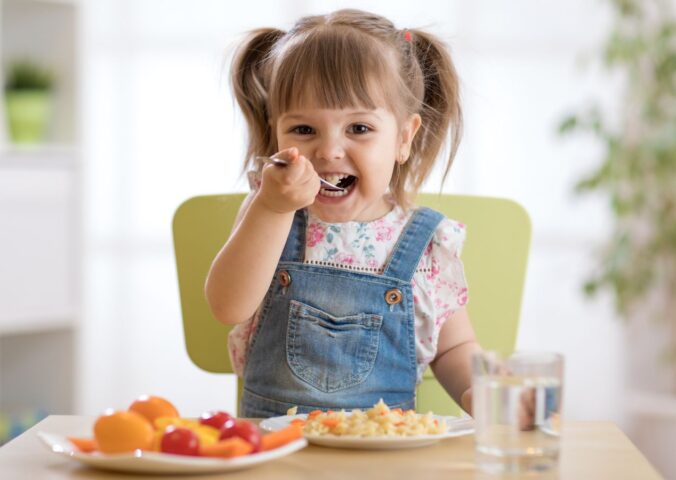Despite the fact that major health bodies like the British and American dietetic associations state that plant-based diets are safe and nutritionally adequate for pregnant people, there still exists a great deal of controversy surrounding vegan pregnancies.
Read more: Austria’s New Dietary Guidelines Recommend Less Meat, More Plant Proteins
Misinformation about plant-based diets is rife in our society. This has led many people to believe that being vegan is unhealthy, and that veganism in pregnancy is unsafe for both parent and baby. But this is categorically untrue.
If you’re vegan and are pregnant, or are planning a pregnancy in the future, you may have some questions about what you should bear in mind, what foods to eat, what to avoid, and so on. We caught up with Rhiannon Lambert, who is regarded as one of the UK’s leading nutritionists, to bust myths around plant-based diets and pregnancy.
Please note: this is intended as a general guide only. If you are pregnant, or planning to become pregnant, you should always consult your doctor for personalized health advice.
Can you be pregnant and follow a plant-based diet?
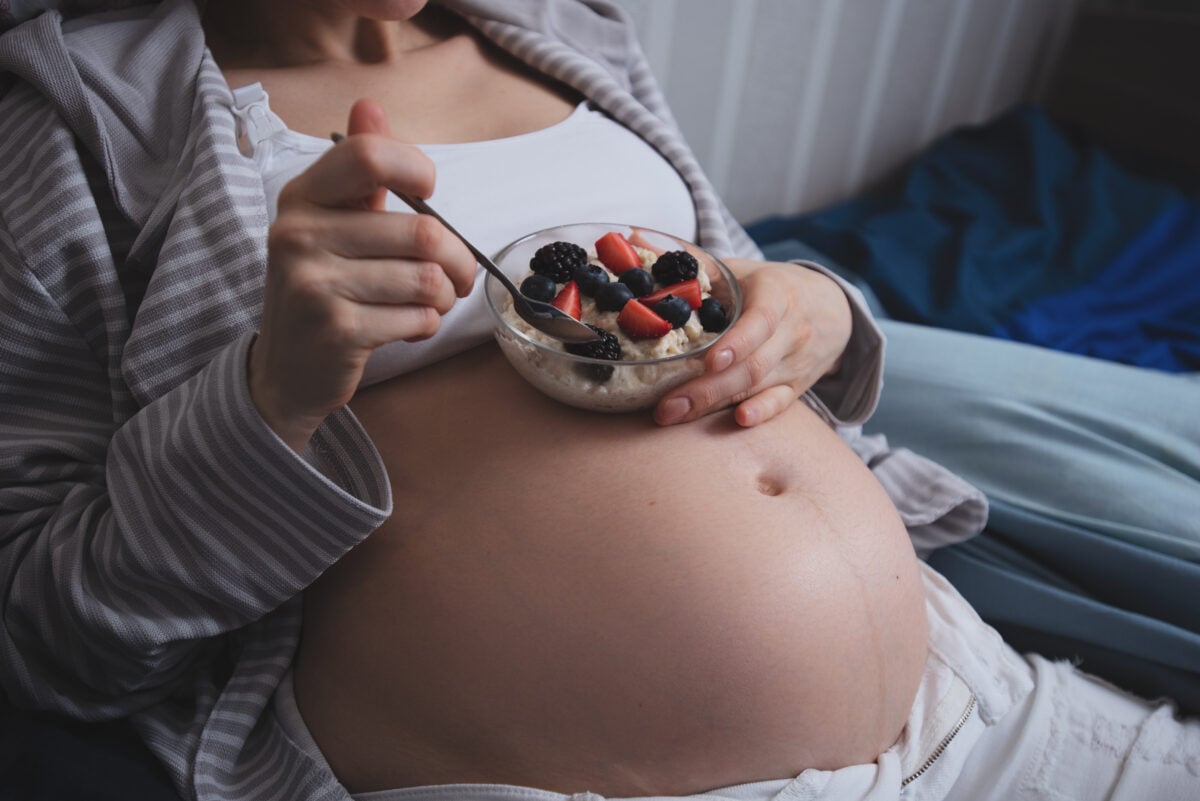
It’s definitely possible to follow a plant-based diet while pregnant. Like with all diets, however, you must ensure that you are getting the right nutrients. “While plant-based diets carry many benefits, if they are not carefully planned and well-balanced then there may be a risk of nutritional deficiencies both for mother and fetus,” says Lambert. “It is likely that, as well as the folic acid and vitamin D recommended to all pregnant women, further supplementation will be required when following a plant-based diet.”
Read more: Vegan Brand Launches Plant-Based Protein Shakes For Kids
She recommends taking care to get enough iron, vitamin B12, vitamin D, calcium, omega-3, and iodine. While most of these – including iron, vitamin D, calcium, and omega-3 can be found in plant foods, it’s generally recommended that all vegans should supplement B12 (find out more about veganism and B12 here). For pregnant vegans, Lambert also recommends potentially looking into supplementation for other nutrients if you aren’t getting adequate intake. “If you think you may not be meeting the daily requirements of these nutrients, it’s best to seek advice from a qualified healthcare professional as you may need to supplement your diet, depending on your individual needs.”
What plant foods to eat while pregnant
Lambert suggests ensuring that you eat a diverse range of different plant foods. Foods she particularly recommends include beans, berries, other fruits, cruciferous vegetables, dark leafy greens, vegetables, nuts, seeds, and good sources of plant protein such as tofu and whole grains. As well as these, she says that fortified foods – like dairy-free milks and cereals – can help ensure adequate nutrition for pregnant people. Eating this diet, plus appropriate supplements, can ensure a healthy plant-based pregnancy with all the right nutrients. She stresses again that it’s always important to speak to your doctor for personalized advice. “Awareness and action are the best ways to ensure you and baby are happy and healthy,” she says.
What are the benefits of being plant-based and pregnant?
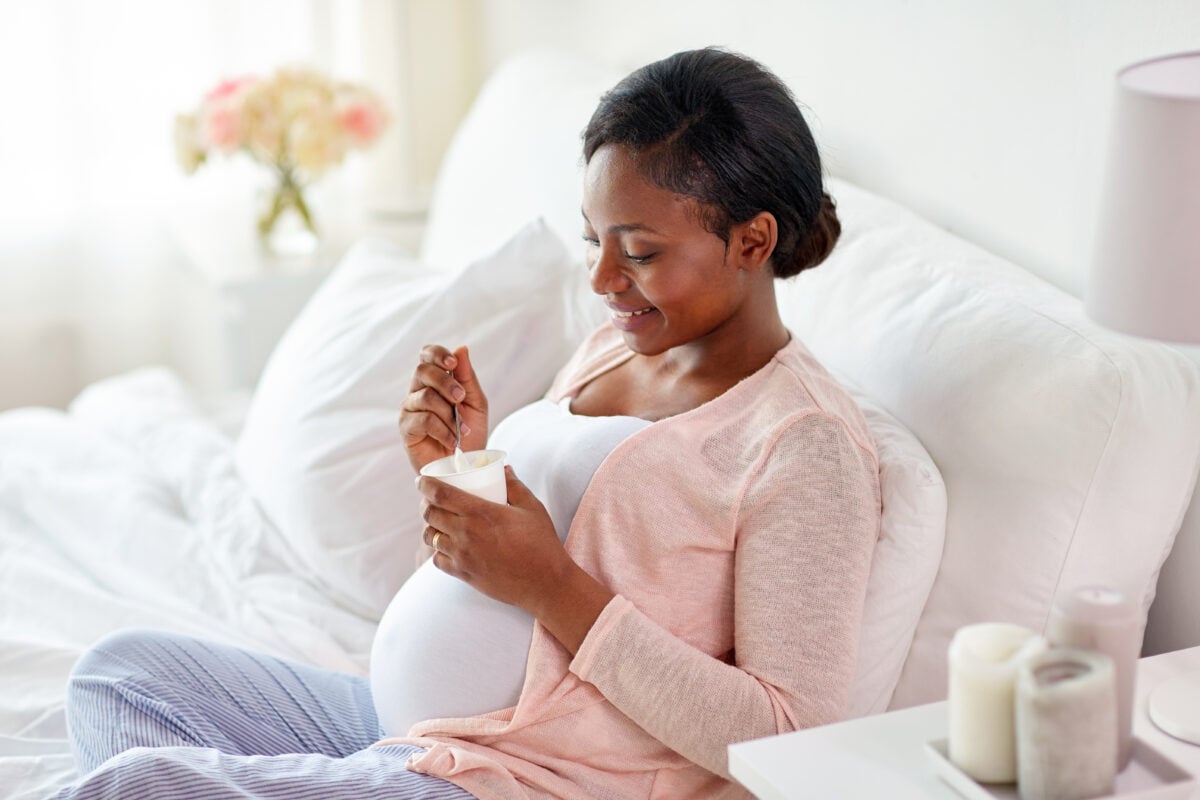
While more studies are needed on the benefits of plant-based pregnancies, Lambert states that there is some evidence that diets rich in fruit, vegetables, wholegrains, vegetable oils, nuts and seeds can reduce the risk of gestational hypertension including preeclampsia.
“Those who follow a plant-based diet are also associated with a reduced risk of other pregnancy-related issues such as preterm birth, gestational diabetes mellitus and excessive gestational weight gain,” she adds.
What foods should be avoided during pregnancy?
Most people are aware that animal-derived foods like raw seafood and unpasteurized milk are potentially unsafe during pregnancy. According to Lambert, there are also a few plant foods to be aware of.
“Unwashed fruits and vegetables can be contaminated with harmful bacteria, so they should be thoroughly washed before consumption,” she says. “Unpasteurised or raw juices and ciders such as raw apple cider vinegar are known to contain bacteria and can lead to foodborne illnesses, so always choose pasteurized versions.
Lambert also notes that raw sprouts, like radish sprouts and mung bean sprouts, can contain bacteria and should be cooked before eating. You should also consult your doctor before drinking some herbal tea, including those with a licorice root, as these can have “adverse effects for the mother and the child.”
Caffeine from sources like coffee, tea, and chocolate should be limited to 200mg a day to lower the risk of miscarriage and low birth weight. In addition, some plant-based supplements, like those containing ginseng, may not be safe during pregnancy. This is because some have anticoagulant (blood thinning) properties that could lead to birth defects. Lambert recommends consulting a healthcare provider before taking them.
“By being cautious and maintaining a balanced plant-based diet, pregnant individuals can support their health and their baby’s health,” says Lambert. “But if you are unsure about anything, it is always best to seek personalized advice from your healthcare provider.”
Rhiannon Lambert is the author of a new book called “The Science of Plant Based Nutrition,” which is described as a “comprehensive guide to the transformative power of embracing a plant-based lifestyle.” The book is on sale now.
Read more: One Third Of Brits Back Plant-Based Shift In Hospitals
